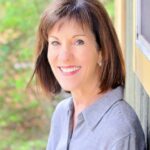The Power of Story
Week of July 24, 2021
Opening Presentation: The Power of Story
Storytelling is one of the oldest and most effective forms of communication. From the earliest days of language, when people told stories around the campfire, to the many books, movies, magazines, blogs, TV shows, podcasts, and video games we have today, we use storytelling to get people’s attention and find meaning in our lives. Scientific research and neurological studies have shown that the human brain is wired for story. Thinking in story allows us to envision the future. Which is why from the very first sentence on, readers must want to know what happens next.
But there’s more to writing a story than just having a good idea. The Power of Story presentation and accompanying workshops will help anyone interested in writing to strengthen her storytelling skills. Stories have power because emotions can be more persuasive than facts. Emotion is what gives fiction the ability to transform people and even history itself. If a reader feels what a character feels, that empathy can cause a shift in perspective that changes the way we look at our lives and the world around us.
In addition, a compelling story not only entertains, but also helps us educate, persuade, make the sale, get that job, write a convincing essay for a school application, campaign for a political candidate, or even convince a VC to fund our startup. In each case, our success is impacted by how we craft the story.
In the four, fiction-focused interactive workshops, the emphasis is on discovery and play. Each session is built around a different craft technique and uses writing exercises, games and prompts to help you learn how to hook readers and captivate an audience.
Creative Writing Workshops
#1 Finding Inspiration
Spark your creativity in this idea-generating session. Workshop prompts and exercises will help you discover how to mine your life to find fodder for your fiction or develop an idea that’s been brewing. You don’t have to search far and wide for material. Even alien landscapes and fantasy worlds find their inspiration in the fabric of our everyday lives. Open the floodgates by asking, “What if?” Then tuck these tips and tricks into your writer’s toolbox—and go forth to create!
#2 Discovering Your Voice: Character creation
Writers (and fictional characters) should have voices as unique as they are. Voice is what makes us care about characters and what they want, even if we have read a hundred books about a hundred characters who want exactly the same thing. So, what’s the secret to writing authentic dialogue that reflects how someone thinks and feels? How do you engage a reader’s interest and empathy in a memoir, essay or blog? In this workshop, we’ll decode what makes a character authentic by playing with elements like point of view, perspective, body language, subtext, and slang. Come prepared to laugh; the improv-based games in this session are often my students’ favorites.
#3 Using the Five Senses to Create Memorable Settings
Learn how to use the five senses to help readers see, feel and experience your story. Discover how vivid verbs, specific nouns, and revealing details can ground readers in time and place. What do phrases like ginger peach tea, cinnamon toast, lavender, freshly-mown grass, dirty socks, or damp dog conjure up? Did you know that smell, more than any of the other senses, can trigger specific memories of place and potent emotion? This workshop may change the way you experience where you are!
#4 Building the World of Your Story, Scene by Scene
How do writers show, not tell? Scenes are self-contained mini stories with a rising energy that builds to a discovery, an epiphany, or an admission. Every scene should have a purpose and end with you wanting to know what happens next. Good ones don’t begin so much as launch—often in the middle of an event. “A story is real life with the boring parts left out,” as writer Elmore Leonard, famously said. Come learn how to keep readers turning pages and listeners glued to their seats.
 Helen Pyne is a freelance editor, writer and creative writing instructor. She’s worked as an editor at Doubleday, Seventeen Magazine and other New York publishing firms and written magazine articles and two mystery novels for young teens. In addition to teaching writing classes in Bay Area schools, Helen works with adult fiction writers and coaches students writing essays for college applications. She’s been the TeenSpeak instructor at the multigenerational Pacific Coast Children’s Writers Novel Workshop & Retreat, mentored student writers appearing in four anthologies, and led workshops for high school girls in Kenya. Helen has a M.F.A. in Writing for Children and Young Adults from Vermont College of Fine Arts and a B.A. from Middlebury College. Married with four children, she enjoys cooking, hiking, reading, traveling—and acai bowls.
Helen Pyne is a freelance editor, writer and creative writing instructor. She’s worked as an editor at Doubleday, Seventeen Magazine and other New York publishing firms and written magazine articles and two mystery novels for young teens. In addition to teaching writing classes in Bay Area schools, Helen works with adult fiction writers and coaches students writing essays for college applications. She’s been the TeenSpeak instructor at the multigenerational Pacific Coast Children’s Writers Novel Workshop & Retreat, mentored student writers appearing in four anthologies, and led workshops for high school girls in Kenya. Helen has a M.F.A. in Writing for Children and Young Adults from Vermont College of Fine Arts and a B.A. from Middlebury College. Married with four children, she enjoys cooking, hiking, reading, traveling—and acai bowls.